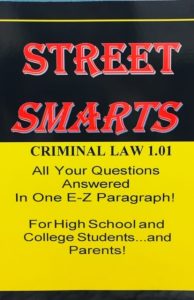Cryptocurrencies are best described as a high risk, high reward investments. While crypto traders may be willing to accept the risks of trading such a volatile commodity, they need to be aware of a growing threat to their wallets: crypto theft and scams. Most cryptocurrencies run without connection to government or centralized agency, creating an aura of uncertainty and intrigue for crypto enthusiasts. For investors and crypto users, this may seem an exciting prospect, but it also means your cryptocurrency account is not insured by the United States government. If assets are stolen from your crypto account, your account is compromised, or your digital wallet manager goes out of business, the United States government has no obligation to repay your losses or help retrieve your money.
Scammers and thieves have also taken note of the lawlessness surrounding cryptocurrency, taking advantage of those unprotected or unfamiliar with common scams. According the Federal Trade Commission, almost 7,000 crypto traders lost over $80 million between October 2020 and March 2021. (FTC Report – Consumer Protection: Cryptocurrency buzz drives record investment scam losses) Crypto-based crimes are on the rise. In 2016, Crypto Head, an international organization dedicated to cryptocurrency research and education reported 340 total reported crypto-related crimes in the United States, compared to the 82,000 reported in 2020. (Crypto Head – Crypto Crimes, Comprehensive Overview)
Cryptocurrency scams and thefts can manifest in a variety of ways, ranging from large scale Ponzi schemes that trick wealthy investors, to more individualized cases involving blackmail. In May 2021, the SEC charged six department heads from BitConnect, a cryptocurrency that devised a scheme to defraud billions from investors and traders. BitConnect was widely traded, with 1.5 million people holding stock in the currency. In a two week period, the founders of the currency made off with over $2.5 billion in profits, causing the coin to fall from $432 per coin to just $26. (BitConnect Scam: The $2.6 BN Ponzi Scheme)
In order to protect themselves from cryptocurrency scams, consumers should follow the age old rule: avoid offers that seem to good to be true. Companies offering generous or multiplying profits with little risk are usually scams. Also, if business or individual insists payment be made using a cryptocurrency, it’s best to steer clear. Finally, be aware of schemes that promise a “better way to earn money” through crypto, you may just find yourself at the bottom of a crypto ponzi scheme.
The recent wave of crypto-related crime has caused serious trouble for lawmakers and the SEC as they look to play catchup with clever criminals. Congress is currently considering a bill that would require the Financial Stability Oversight Council to treat cryptocurrencies as financial markets. Additionally, corporations who hold cryptos and enjoy revenues from them would need to gain bank holding classification from the Federal Reserve. This bill represents a much larger plan for governments to reign in and regulate cryptocurrencies. If you have been charged with a cryptocurrency related crime, contact an experienced and competent criminal trial lawyer with an understanding of this developing field of law.
 South Florida Criminal Defense Lawyer Blog
South Florida Criminal Defense Lawyer Blog





